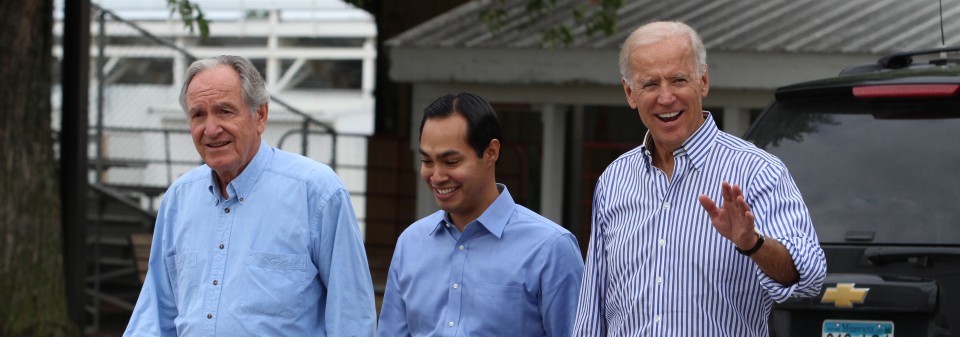Missouri has a population of a little over 6 million people – 6,010,688 as of 2010 to be exact. 14.2% (853,518) of those people were over 65 years old. 14% (841,496) were below the poverty level as defined by the U.S. Census Bureau. The same number is uninsured. The state has mostly mediocre to poor rankings when it comes to education, children living in poverty, infrastructure, you name it. The only kind thing any rating agency had to say about Missouri was that it was very business friendly – and the source, of that ranking, the United States Chamber of Commerce, stands so far to the right that anything they have to say about issues that affect quality of life has to be taken with the proverbial pinch of salt. Yet Missourians seem to be very down on President Obama, Claire McCaskill and programs, such as stimulus spending and Obamacare, which would address many of Missouri’s quality of life issues. Why?
The right-wing gets apoplectic when anyone suggests race may be at the root of the hard-right swing on the part of states that have the most to loose by moving in that direction (although they really, really love to call Obama racist). However, the latest strategic move on the part of the Romney campaign – a campaign, incidentally, that has arguably been only limping along – suggests that racism, or at least the variant thereof usually referred to as white resentment, may play a significant role in our political narrative – one that the Romney campaign, in desperation, is attempting to exploit.
What I am referring to are the ads in which the Romney camp – falsely – claims that President Obama has eliminated the welfare for work requirements in the Clinton welfare reform. The racial undertones have not gone unnoticed. If you’re interested in confirming empiricaly what most of us think we know intuitively, Michael Tesler summarizes the social science research that supports his contention that while the ad’s message:
… may seem race-neutral, there is a long-standing and strong association in white Americans’ minds between welfare and “undeserving” African-Americans (see here and here). According to Jonathan Chait, then, “the political punch of this messaging derives from the fact that white middle-class Americans understand messages about redistribution from the hard-working middle-class to the lazy underclass in highly racialized terms.”
Of particular interest to Tesler is some YouGov data that analyzes responses to the Romney welfare ads based on prior racial attitudes. The findings “suggest that ads like the one in this post [the latest Romney welfare ad] may well contribute to the growing polarization of public opinion by racial attitudes beyond the voting booth in the age of Obama.”
These findings echo the author’s broader efforts to examine the dynamics of race in our political life. Tesler and David O. Sears reported in their book on the racial politics of Obama’s election:
… that in Obama’s first 100 days, even as news polls showed him broadly popular (and before Republicans had turned en masse against him), surveys that also measured racial resentment unmasked a deep, nonpartisan divide. In April 2009, the Pew Research Center showed a gap of 70 points in Obama’s approval between “strong racial liberals” and “strong racial conservatives”-more than any of his five most recent predecessors in the White House. …
The authors then looked at issues that have not traditionally been viewed from a racialized perspective and polled attitudes about these issues relative to the previously identified racial attitudes of the respondents. For instance, in regard to health care reform:
Voters who heard descriptions of the contrasting components of the 1993 Clinton and 2009 Obama proposals were more likely to grow disapproving of Obama’s when they heard the presidents’ names-as long as they demonstrated racial resentment elsewhere in the survey.
Several commentators have already noted that lots of voters made up their minds long ago, and the expensive ad war is being played out for the benefit of a few undecideds. What does it say about us that at least one candidate is attempting to win over the undecided with covert racist messages? Does the fact of greater polarization explain Missouri’s slide into squalid red state status? Do Missourians tolerate the Tea Party fools we’ve sent to Jefferson City and, in many cases, to Washington because a lot of us are afraid the black man in Washington will empower African-Americans in Kansas City and St. Louis?
